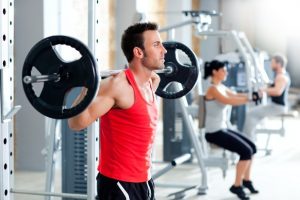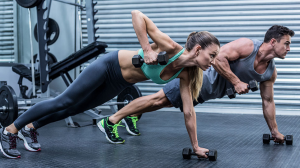Many bodybuilders are faced with the problem of choosing products, so we consider it necessary to list those products from which you can form a complete diet for gaining muscle mass. Most products contain both protein, fats and carbohydrates, so the division is made conditionally, just to give emphasis. Do not eat the same product for a long time in large quantities, otherwise after a while you will develop an aversion to it. Try to constantly rotate foods and update your menu.

Protein foods
In fact, there are not so many protein-rich foods . Let’s list the most popular and affordable ones, in order of their value to the athlete:
1. Meat – any, lean. Poultry meat is preferable because it contains practically no fat and is easily digestible.
2. Fish and other seafood . You can also eat any fish, including fatty ones, at least 2-3 times a week.
3. Dairy products . Give preference to fat-free foods. The most popular are cottage cheese , cheese, kefir, milk , yoghurts, etc.
4. Eggs . You can eat 6-8 eggs a day, along with the yolks. It is scientifically proven that if you do not have high blood cholesterol , then eggs will not affect its level in the future.
5. Legumes. Beans, beans, peas, mung bean, lentils are the most important plant sources of protein, although their value is lower than that of other foods. Lentils and chickpeas additionally contain significant amounts of BCAAs. Soy is not specifically included in this list, as soy products are currently often genetically modified, and men are not advised to consume soy due to its hormonal activity.
6. Nuts – contain not only protein, but also valuable unsaturated fatty acids
Carbohydrate foods
1. Cereals .
- Porridge. Porridge contains slowly digestible carbohydrates, protein, as well as trace elements and vitamins. The most useful cereals: buckwheat, barley (pearl barley), oatmeal , rice, millet, corn, wheat, quinoa.
- Pasta and noodles. Choose foods made from wholemeal flour and durum wheat.
- Bread. Consume mostly black bread.
- Flakes and muesli make it possible to diversify the athlete’s menu.
2. Vegetables and mushrooms.
Limit all starchy vegetables such as potatoes, boiled or stewed carrots, and beets. Fresh vegetables are considered the most useful, as they contain the maximum amount of vitamins. Vegetables should be combined with almost every protein meal, because they promote the digestion and absorption of animal protein, are a source of fiber necessary for digestion, and contain a large amount of vitamins, macro- and microelements. Mushrooms give aroma and taste to dishes, but they do not represent nutritional, and even more so protein value, due to the fact that the protein of mushrooms is not absorbed by the human body.
3. Fruits and herbs.
Extremely healthy foods, they contain many vitamins and minerals. However, sweet fruits (grapes, pears, ripe bananas, persimmons) contain a lot of simple sugars, so their use should be limited.
Fats
It is separately recommended to take omega-3 fatty acids, which have a positive effect on the condition of the body. Otherwise, vegetable oils should be used in small quantities. An important source of fat is seafood. See also: Healthy fats .

Combination with sports nutrition and steroids
This diet can be used both independently and in combination with sports nutrition , and with anabolic steroids .
Protein shakes should be taken between meals, before bed, immediately after sleep, and immediately after training.
If a gainer is available , it should only be taken one hour before training, and also after the end of the session. After workout, drink whey isolate , BCAAs have a solid evidence base .
It is highly desirable to consume a vitamin-mineral complex , since there are not enough vitamins in the bodybuilder’s diet, since often there are not enough intestinal resources for fruits and greens.
Take creatine post-workout, along with a sweet juice, or mix it with a gainer or protein. This will ensure its best absorption by the muscles.
Anabolic steroids do not make any changes in the diet, except that you can eat much more, and the ideal weight gain is 1–1.5 kg per week, that is, 2 times more.
